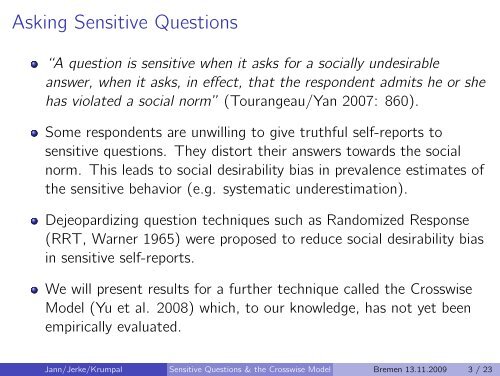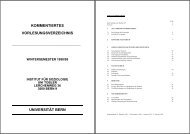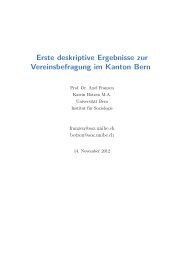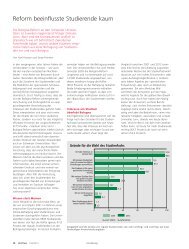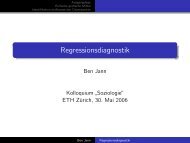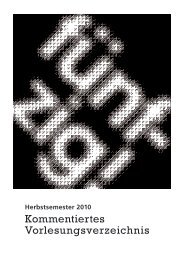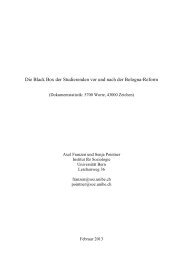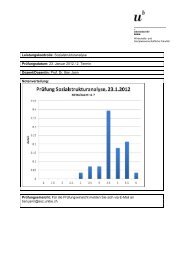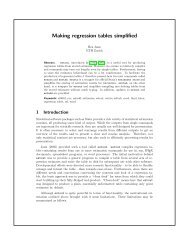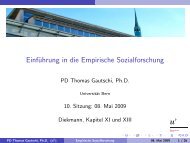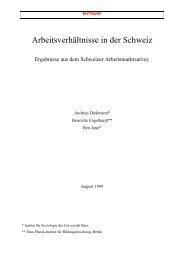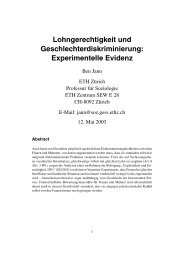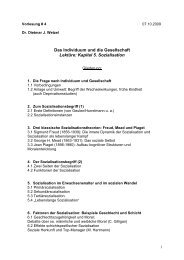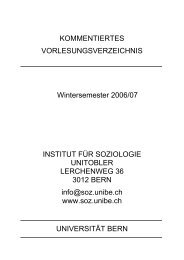Asking Sensitive Questions Using the Crosswise Model: Some ...
Asking Sensitive Questions Using the Crosswise Model: Some ...
Asking Sensitive Questions Using the Crosswise Model: Some ...
Create successful ePaper yourself
Turn your PDF publications into a flip-book with our unique Google optimized e-Paper software.
<strong>Asking</strong> <strong>Sensitive</strong> <strong>Questions</strong><br />
“A question is sensitive when it asks for a socially undesirable<br />
answer, when it asks, in effect, that <strong>the</strong> respondent admits he or she<br />
has violated a social norm” (Tourangeau/Yan 2007: 860).<br />
<strong>Some</strong> respondents are unwilling to give truthful self-reports to<br />
sensitive questions. They distort <strong>the</strong>ir answers towards <strong>the</strong> social<br />
norm. This leads to social desirability bias in prevalence estimates of<br />
<strong>the</strong> sensitive behavior (e.g. systematic underestimation).<br />
Dejeopardizing question techniques such as Randomized Response<br />
(RRT, Warner 1965) were proposed to reduce social desirability bias<br />
in sensitive self-reports.<br />
We will present results for a fur<strong>the</strong>r technique called <strong>the</strong> <strong>Crosswise</strong><br />
<strong>Model</strong> (Yu et al. 2008) which, to our knowledge, has not yet been<br />
empirically evaluated.<br />
Jann/Jerke/Krumpal <strong>Sensitive</strong> <strong>Questions</strong> & <strong>the</strong> <strong>Crosswise</strong> <strong>Model</strong> Bremen 13.11.2009 3 / 23


